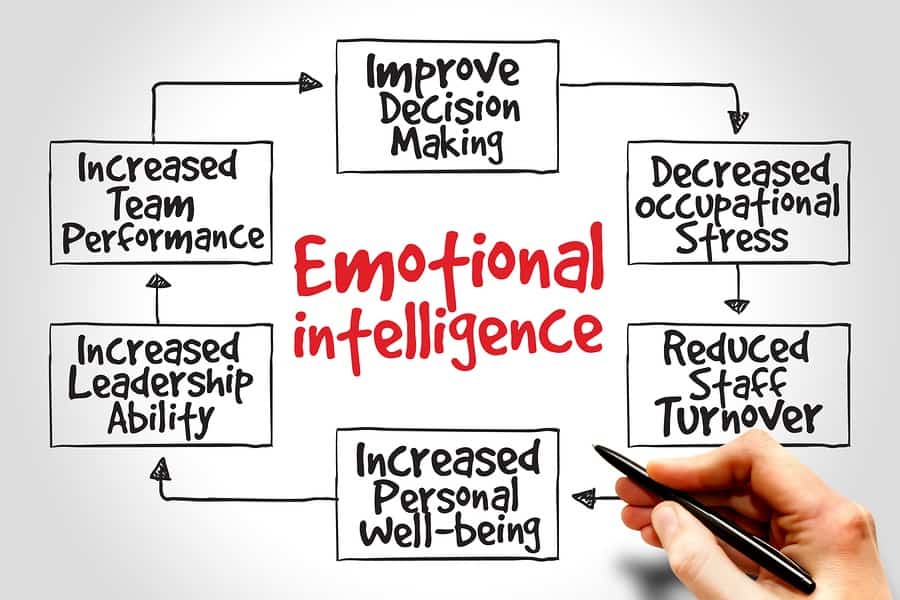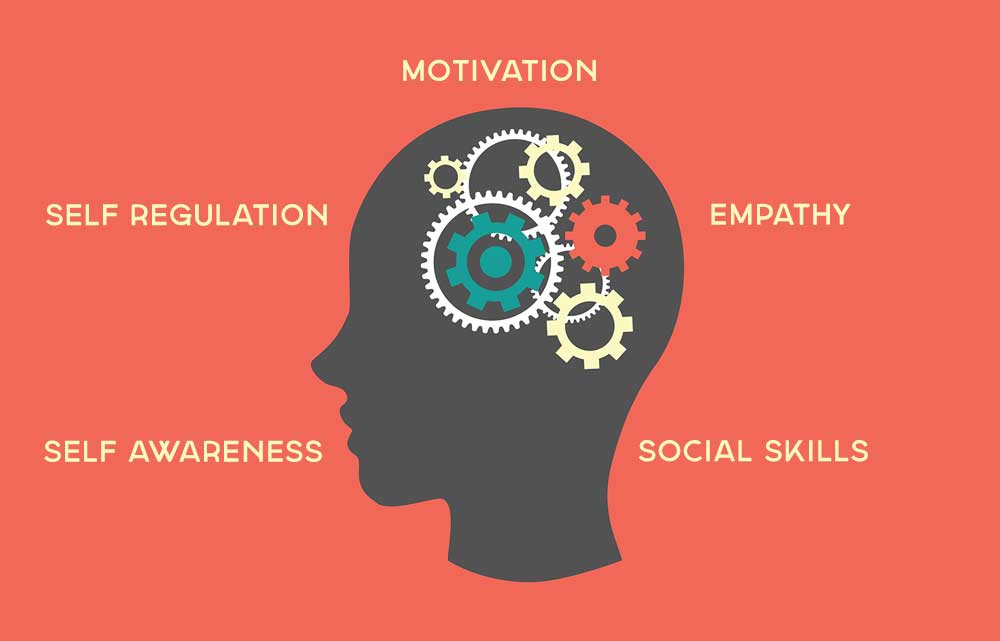
Research reveals that emotional intelligence accounts for nearly 90% of what sets high performers apart from their peers with the same knowledge and technical skills.
Leadership can be a difficult task at the best of times, but when faced with a tempestuous environment, it can become even more challenging. Tempestuous times can be characterized by uncertainty, volatility, and change, all of which can put significant pressure on leaders. However, with emotional intelligence skills leaders can weather any storm and emerge stronger than ever before.
What Is Emotional Intelligence?
Emotional intelligence is the ability to recognize, understand and manage your own emotions, as well as the emotions of others. It is a critical skill for leaders, particularly in tempestuous times when emotions can run high and wild. Leaders who possess emotional intelligence are better equipped to navigate the turbulent waters of change, remain calm and composed, and inspire and motivate their team.

The term was first coined by researchers Peter Salovey and John Mayer and was later popularised by psychologist Daniel Goleman. They highlighted that most effective leaders have a high degree of emotional intelligence. And it is not that technical skills and IQ are irrelevant, but they are just entry-level requirements for executive positions and do not guarantee your long-term success.
The Four Core Components Of Emotional Intelligence

Emotional intelligence is generally broken down into four key competencies. This includes:
Self-aware leaders can recognize their strengths and weaknesses and understand how their emotions impact their behavior. This awareness helps them to regulate their emotions and avoid impulsive decisions that could have negative consequences.
In tempestuous times, self-awareness can be particularly valuable, as it enables leaders to remain calm and composed, even when under significant stress.
This refers to one's ability to manage their emotions even in stressful situations and maintain a positive outlook despite devastating setbacks. Leaders who lack self-management often find it tricky to keep their impulses and check and hence leading to negative reactions and responses.
Social skills refer to the ability to communicate effectively, to resolve conflicts, and to build relationships. Leaders who possess strong social skills are better able to inspire and motivate their team, communicate a clear vision, and build a culture of trust and collaboration.
In tumultuous times, social skills are particularly important, as they enable leaders to manage conflicts, build consensus, and inspire their teams to overcome challenges.
This refers to leaders' ability to coach, influence and mentor others while resolving conflicts effectively. Research shows that unaddressed conflicts can waste about 8 hours of a company's time in unproductive activities and gossips this draining resources and employee morale.
Another important component of emotional intelligence is empathy. Empathy is the ability to understand and relate to the emotions of others. Leaders who possess empathy are better able to connect with their team, build trust, and foster a positive and collaborative working environment. In tempestuous times, empathy is particularly important, as it can help leaders to understand the fears and concerns of their team, and to respond in a way that is supportive and reassuring.
The Role Of Emotional Intelligence In Leadership
Leadership is all about guiding and inspiring your team and driving them to achieve a common goal. Leaders must be able to connect with their team members on an emotional level to be able to be effective. Leaders with high emotional intelligence can manage their own emotions while reading their team member’s emotions and respond appropriately thus building trust and strengthening relationships.
Another important component of emotional intelligence is empathy. Empathy is the ability to understand and relate to the emotions of others. Leaders who possess empathy are better able to connect with their team, build trust, and foster a positive and collaborative working environment. In tempestuous times, empathy is particularly important, as it can help leaders to understand the fears and concerns of their team, and to respond in a way that is supportive and reassuring.
Strategies For Developing Emotional Intelligence
Emotional intelligence can be developed with intention and practice. Some of the key tips include:
Why Does It Matter?
Leaders set the tone for their organization. Hence, if they lack emotional intelligence, they can have consequences resulting in lower engagement rates and high employee turnover. Therefore, leaders must undergo a Master Trainer Program to communicate with their team effectively and advance their careers in the organization. And even though emotional intelligence can be challenging to develop and apply, it is worth the effort.
Written By : Laura Taylor
Centre For Training & Professional Development (CTPD) - The Trading brand of TTA Training Private Limited, India is a ISO 9001:2015 Company




© 2021 - Centre For Training & Professional Development (CTPD). All Rights Reserved. Centre For Training & Professional Development (CTPD) trading brand of TTA Training Pvt. Ltd (India) - CIN U80902WB2016PTC215839, Asia Teachers Training Co., Ltd (Thailand) - Registration No. 0105558193360 & Asian College Of Teachers Ltd (UK) - Company Number 9939942 & Asian College Of Teachers LLC, (USA) - Federal Tax Identification Number 30-1261596
Designed by kreativewebtech